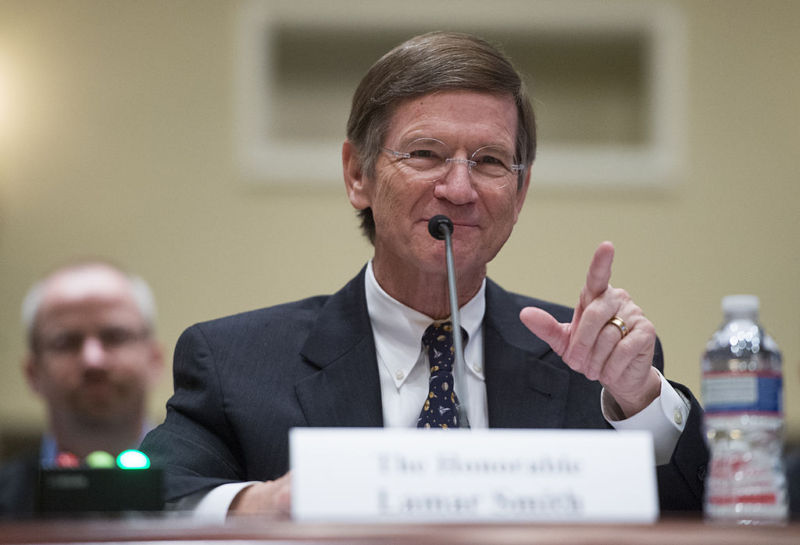
From his position as Chair of the House Committee on Science, Space, and Technology, Congressman Lamar Smith (R-TX) has seen fit to wade into oil giant Exxon Mobil’s legal troubles in a big way. Several state attorneys general—most notably New York AG Eric Schneiderman—are seeking records from Exxon following news stories detailing Exxon’s own climate research in the 1970s and 1980s. After its own research found that climate change was clearly linked to fossil fuel burning, Exxon shuttered that research and began publicly promoting doubt over global warming.
The investigations are looking into whether Exxon effectively misled its investors about the company’s risks—just as tobacco companies were found to have done in the 1990s.
Last week, it was discovered that the US Securities and Exchange Commission (SEC) has been following the Exxon investigation and seeking records from the company itself. The Wall Street Journal reported that the SEC was interested in how Exxon values its assets as climate policies grow stronger, as well as “Exxon’s longstanding practice of not writing down the value of its oil and gas reserves when prices fall.”
Previously, Smith had issued subpoenas to state attorneys general and a number of environmental advocacy groups over the securities fraud investigations, which he argues are an effort to stifle free speech and academic research. On Thursday, Smith sent a new letter, this one to the SEC.
In the letter, Smith writes:
The Committee’s jurisdiction over energy and environmental research includes an obligation to ensure that such research advances the American scientific enterprise to the fullest extent possible, free from threat of intimidation or prosecution. The Committee is concerned that the SEC, by wielding its enforcement authority against companies like Exxon for its collection of and reliance on what is perhaps in the SEC’s view inadequate climate data used to value its assets, advances a prescriptive climate change orthodoxy that may chill further climate change research through the public and private scientific R&D sector.
The letter demands all relevant documents and communications involving SEC staff, the Department of Justice, the White House, the state attorneys general, and a number of environmental groups.
Concerns about chilling climate research are rather unexpected, coming from someone who subpoenaed federal climate scientists whose research he did not like. Previously, Congressman Smith has in fact preferred to believe that it was the planet that was chilling.
With his (now routine) lack of any sense of irony, Rep. Smith also writes, “Although the Committee is not interested in the merits of the New York AG’s nearly year-long probe, the AG’s efforts, characterized variously as a ‘witch hunt’ and ‘fool’s errand’, an ‘abuse of powers,’ ‘pathetic,’ a ‘schtick,’ and an ‘uphill battle,’ have failed to uncover any indicia of wrongdoing by Exxon.'”
After Rep. Smith’s subpoena for e-mails of NOAA climate scientists was stonewalled by the agency, the conservative group Judicial Watch filed a Freedom of Information Act request for essentially the same documents. NOAA handed over records four months ago, but Judicial Watch has so far failed to make any of it public. Meanwhile, the apparent legal pall hanging over one of Smith's top donors seems to have distracted him to the extent that he's not pursued NOAA further.
reader comments
152